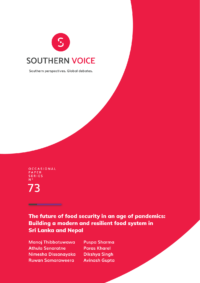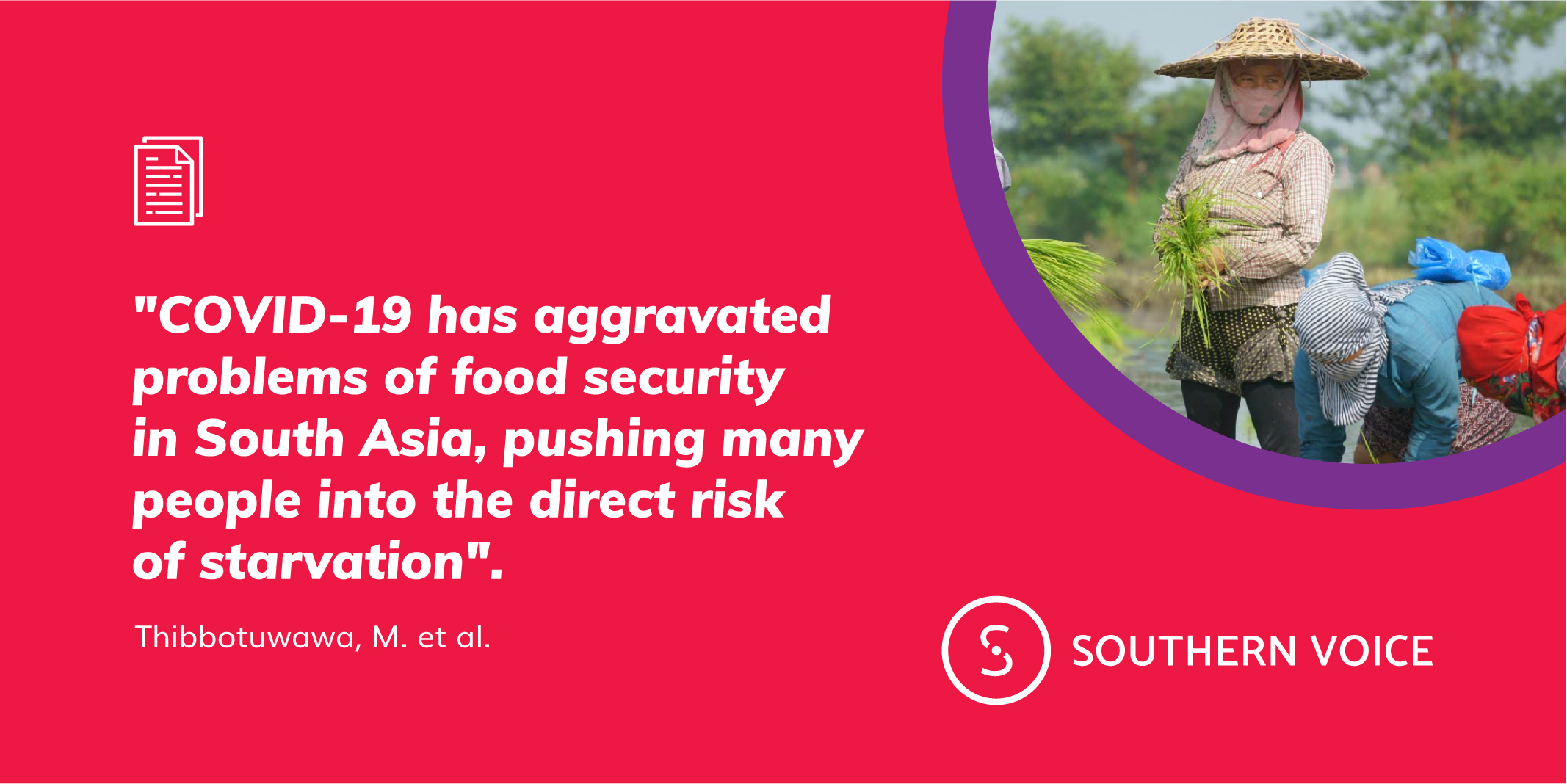The aim is to understand ways to strengthen agri-food markets and value chains and related social protection mechanisms.
 This study investigates ways to strengthen agri-food markets and value chains— and related social-protection mechanisms—to build a more sustainable, resilient, and inclusive food system in Sri Lanka and Nepal, with the aim of helping these countries make a speedy recovery from the COVID-19 pandemic shock. Combining secondary research with primary data collected through in-depth interviews, the study analyses the impacts of COVID-19 on rice and vegetable value chains in the two focal countries. It illustrates that despite government initiatives to help food producers, distributors, and consumers during the lockdown, supply chain disruptions have had a negative impact on the food security of affected populations and thus the achievement of SDG 2 (zero hunger). In the shorter term, the study suggests that ensuring a smooth supply of inputs, such as seeds, fertiliser, and agro-chemicals; improving access to agricultural financing; establishing efficient decentralised public and private procurement and distribution systems that feature buffer stocks and utilise e-commerce; and strengthening food-related social security programmes can help mitigate the effects of the pandemic. In the medium and longer terms, the study recommends addressing several larger, structural issues in the food system; these issues are related to agri-extension, food-system monitoring, food processing and value addition, and farm-market linkages.
This study investigates ways to strengthen agri-food markets and value chains— and related social-protection mechanisms—to build a more sustainable, resilient, and inclusive food system in Sri Lanka and Nepal, with the aim of helping these countries make a speedy recovery from the COVID-19 pandemic shock. Combining secondary research with primary data collected through in-depth interviews, the study analyses the impacts of COVID-19 on rice and vegetable value chains in the two focal countries. It illustrates that despite government initiatives to help food producers, distributors, and consumers during the lockdown, supply chain disruptions have had a negative impact on the food security of affected populations and thus the achievement of SDG 2 (zero hunger). In the shorter term, the study suggests that ensuring a smooth supply of inputs, such as seeds, fertiliser, and agro-chemicals; improving access to agricultural financing; establishing efficient decentralised public and private procurement and distribution systems that feature buffer stocks and utilise e-commerce; and strengthening food-related social security programmes can help mitigate the effects of the pandemic. In the medium and longer terms, the study recommends addressing several larger, structural issues in the food system; these issues are related to agri-extension, food-system monitoring, food processing and value addition, and farm-market linkages.


